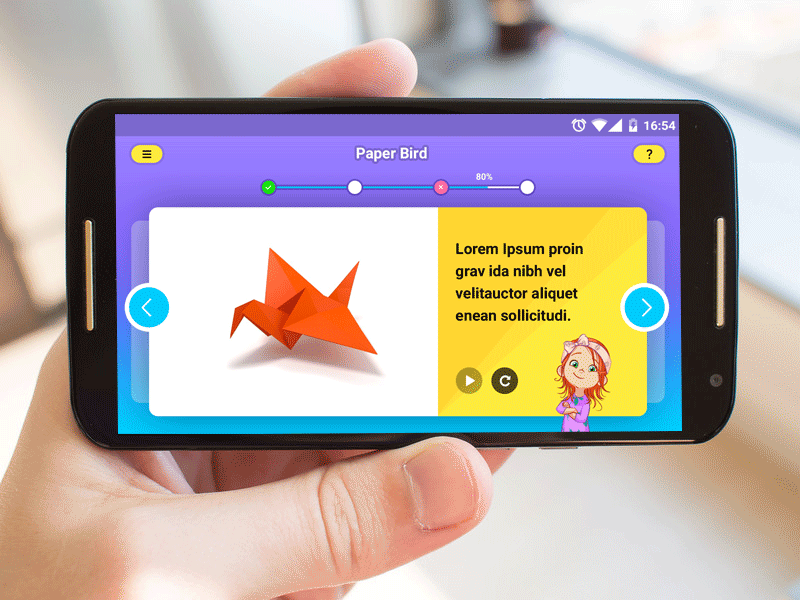
Prashant Pundir
Update: This article was last updated on 15th January 2026 to reflect the accuracy and up-to-date information on the page.

Teaching in the Internet age means we must teach tomorrow’s skills today: Jennifer
With the continuous progression of education in today’s society, policymakers, teachers, and parents are finding innovative ways for children to learn, and get the best out of them by utilizing technology. The use of technology in schools has almost become fundamental. However, there are other choices offered outside the classroom, such as educational apps.
With educational apps, learning becomes diverse and flexible, catering to all ages and abilities. Scholars emphasize subject-oriented studies. Good education is no longer reserved for the wealthy; even average families can afford smartphones with educational apps. These cover various subjects like math and language, and can be easily downloaded from app stores. Yet, selecting the best apps for skill monitoring and knowledge gathering remains a challenge.
Recommended reading: App Development: Let Your Child Invent
Today’s scenario
If we talk about schools, teachers have picked up the modified version of teaching students and simplifying their day-to-day tasks. Students are seen with tablets in schools and mobile apps provide a natural progression. Teachers also use tablets to monitor assignments and allow children to focus on their primary subjects. This also reduces the amount of paper used.
As per a recent survey, educational apps are highly sought after among kids between 5 to 10 years old. Slide back a few years and mobile apps were a matter of concern for parents and teachers, but it’s not the case anymore. The use of mobile learning applications has grown immensely over the last few years. Apple App Store boasts of a whopping 65200 educational apps available for use by iPhone and iPad users, which makes up 8.47 percent of all apps. On Google Play Store, Education is the most popular category with around a quarter of a million apps.
Recommended reading: App Development Program For Kids By Moonpreneur
Recommended Reading: Best Educational Apps For Kids In 2026
Benefits of Mobile Apps in Education
1. Remote Learning
Kids need to learn and utilize available technologies and resources at their disposal. Learning away from traditional classrooms allows students to enhance their ability to use technology as apps, and it also assists them in progressing faster. The apps can be used at all times, so students can use them in their free time as well during the holidays.
2. Parent-Children-Teacher Communication
Mobile apps resolve parental disengagement by enhancing children’s interactivity and fostering better parent-child engagement. These facilitate collaborative learning, strengthening bonds and enabling active parental involvement. Amid busy schedules, parent-teacher communication apps bridge gaps, fostering ongoing discussions on children’s progress. This ensures transparency and effective addressing of parental concerns by teachers.
3. Availability 24/7
Now, the classroom is portable. You can roam around anywhere and sit in comfortable positions while learning from mobile apps. There is no need to follow a tight schedule, it’s not time-bound and leads to a relaxed and easier form of learning. Children only need to pick up their phones and reach out to the apps whenever they feel like learning.
4. Entertainment
Studying is no longer passive and boring. Children no longer need to follow the monotonous routine of attending classes. Mobile apps provide entertaining illustrations and graphics, which have proved to enhance the interest of children in learning. Children also feel less stressed with no teachers regularly checking on them. They feel more relaxed while learning with mobile apps which leads to better learning. Various studies have shown that mobile educational apps combined with entertainment, instill more determination in children to learn and pass on to the next level.
5. Online Resources
The power of digital platforms lies in their resources. The knowledge-seekers can absorb information from wealthy educational apps. The freedom to select the content you desire to read is available in various formats such as eBooks, PDFs, etc. Gone are the days when you had to go to libraries seeking books and carrying them around. Mobile apps provide enough space for you to store as much information as you want.
6. Make Children Tech-Savvy
According to Edison Research, the number of smartphone users below the age of 18 has increased by 600% from 2009 to 2014. It is the need of the hour for children to become tech-savvy. The use of educational mobile apps allows children to gather a fair bit of technical skills to use apps, and also prepares them for the use of similar gadgets such as tablets. It provides familiarization with technology.
7. Portable and saves time
Using mobile apps in education offers the advantage of portability, significantly saving time. With access to vast libraries and study materials on smartphones, students can learn anytime, anywhere. This flexibility breaks the confines of traditional classrooms, allowing for personalized and convenient learning experiences.
8. Systematic Learning
All mobile educational apps have their unique features and elements, but what remains common in them is systematic learning. Systematic learning is the next step after smart learning. App-based learning enables both. There is a coherent structure that all apps follow and students learn in a very systematic way, avoiding any haywire possibilities without even realizing it.
9. Economic Earth
With the number of environmental issues we are facing, app-based learning is the way forward. The traditional method of learning requires many trees to be cut down every year. Governments can cut down on this aspect and move towards eco-friendly learning. Mobile learning is a much more effective way of learning and is just a download away. We need a greener and more sustainable earth for our future generations. Therefore, mobile learning apps have become even more important in the educational sector.
10. Cost-Effective Learning
Mobile apps often provide more affordable or even free access to educational resources compared to traditional textbooks and materials. By leveraging digital platforms and open-access content, these apps reduce financial barriers to quality education, making learning resources more accessible and equitable for students of all backgrounds.
11. Diversified and Interactive learning
Mobile apps in education transform learning with dynamic experiences and diverse content. Incorporating interactive features like quizzes and simulations, they engage students actively, fostering deeper comprehension. Alongside, a wealth of multimedia resources such as videos and articles caters to diverse learning preferences. This variety ensures comprehensive access to engaging materials tailored to individual needs, enhancing understanding and engagement for learners of all backgrounds and abilities.
Recommended Reading: 7 Most Popular Educational Tools for Students
Conclusion:
In today’s rapidly evolving educational landscape, technology plays a pivotal role in shaping learning experiences Mobile apps offer a myriad of benefits, revolutionizing education as we know it. With features like interactive learning and diversified content, these apps engage students actively, fostering deeper comprehension and catering to diverse learning preferences. Moreover, they facilitate personalized learning, enabling students to progress at their own pace. Cost-effective and available 24/7, mobile apps provide convenient access to educational resources, making learning more accessible and equitable. Embracing mobile app technology in education paves the way for a more dynamic, efficient, and sustainable learning environment.
Moonpreneur is on a mission to disrupt traditional education and future-proof the next generation with holistic learning solutions. Its Innovator Program is building tomorrow’s workforce by training students in AI/ML, Robotics, Coding, IoT, and Apps, enabling entrepreneurship through experiential learning.


























What are the advantages of online educational apps?
These digital platforms provide numerous benefits, reshaping the way we gain knowledge and expertise.
1. Flexibility and Convenience: Online learning applications empower learners to customize their schedules, offering a convenient and flexible approach.
2. Diverse Course Offerings: Online education expands opportunities with a wide array of courses spanning diverse subjects and skill levels.
Tell me some benefits of apps?
Here are some of the benefits:
What is the purpose of using mobile apps?
An app, defined as a self-contained software package, enables users to execute specific tasks on mobile or desktop devices, often pre-installed or distributed through proprietary app stores like the Apple App Store and typically written in various programming languages.